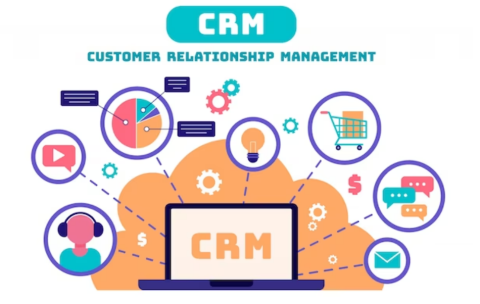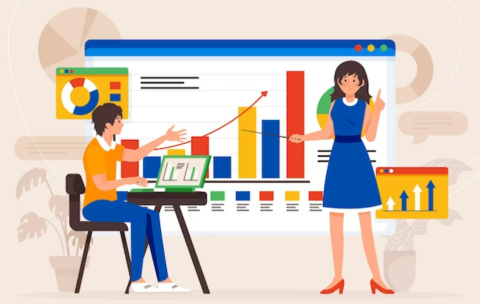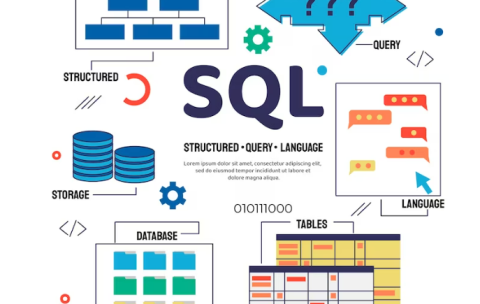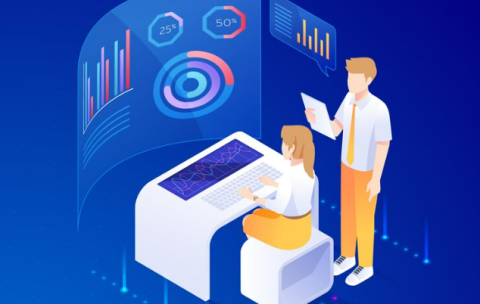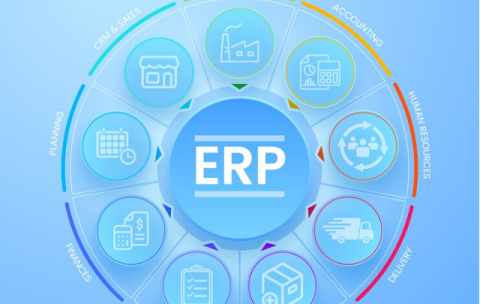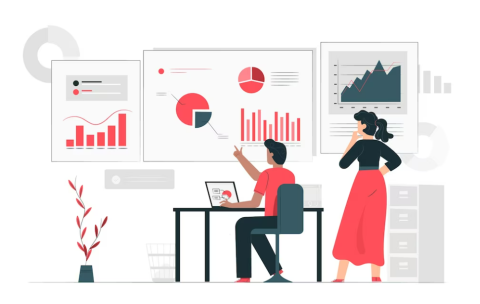Popular Instructors
All Hard Skills Courses
Supply Chain Analytics – Unlocking Efficiency with Supply Chain Analytics
Supply Chain Analytics – Unlocking Efficiency with Supply Chain Analytics …
What you'll learn
Week 1: Introduction to Supply Chain Management and Analytics (4 Hours)
Session 1 (2 Hours): Fundamentals of Supply Chain Management
Overview of Supply Chain Concepts and Components
Role of Analytics in Supply Chain Management
Introduction to Supply Chain Models
Session 2 (2 Hours): Introduction to Supply Chain Analytics Tools and Techniques
Overview of Analytical Tools Used in Supply Chain (e.g., Excel, R, Python)
Basic Data Analysis Techniques for Supply Chain Data
Case Studies Highlighting the Importance of Analytics in Supply Chain
Week 2: Data Management and Descriptive Analytics (6 Hours)
Session 3 (2 Hours): Data Management in Supply Chains
Data Collection and Management Strategies in Supply Chains
Data Quality and Governance in Supply Chain Analytics
Introduction to Data Warehousing and Data Lakes
Session 4 (2 Hours): Descriptive Analytics in Supply Chain
Using Descriptive Analytics to Understand Historical Performance
Key Performance Indicators (KPIs) in Supply Chain Management
Visualization Techniques for Supply Chain Data
Session 5 (2 Hours): Practical Exercise on Descriptive Analytics
Hands-on Exercise with a Supply Chain Dataset
Creating Dashboards and Reports for Supply Chain Performance
Week 3: Predictive Analytics and Optimization Techniques (6 Hours)
Session 6 (2 Hours): Introduction to Predictive Analytics in Supply Chain
Overview of Predictive Modeling Techniques
Forecasting Demand and Inventory Requirements
Predictive Maintenance in Supply Chain Operations
Session 7 (2 Hours): Supply Chain Optimization Techniques
Linear Programming and Network Optimization Models
Optimization of Logistics and Distribution Networks
Case Study on Supply Chain Optimization
Session 8 (2 Hours): Advanced Topics in Predictive Analytics
Machine Learning Applications in Supply Chain
Scenario Planning and Risk Analysis in Supply Chain
Real-time Analytics and IoT in Supply Chain Management
Week 4: Strategic Applications and Capstone Project (4 Hours)
Session 9 (2 Hours): Integrating Analytics into Supply Chain Strategy
Building Data-Driven Supply Chain Strategies
Sustainability and Ethics in Supply Chain Analytics
Future Trends in Supply Chain Analytics
Session 10 (2 Hours): Capstone Project and Course Wrap-Up
Group Project: Developing an Analytical Solution for a Supply Chain Problem
Presentations of Capstone Projects
Course Summary and Pathways for Further Learning
The course should be a mix of lectures, case studies, and practical exercises, ideally using real-world supply chain data. The capstone project in the final week would allow students to apply the concepts and techniques learned to a real or simulated supply chain problem, reinforcing their understanding and practical skills in supply chain analytics. This structure ensures that MBA students are not only knowledgeable about analytical techniques but also understand how to apply these skills effectively in the context of supply chain management.
Tableau for Business Intelligence – Business Intelligence with Tableau
Tableau for Business Intelligence – Business Intelligence with Tableau is an …
What you'll learn
Week 1: Introduction to Tableau and Data Visualization (4 Hours)
Session 1 (2 Hours): Fundamentals of Tableau
Introduction to Business Intelligence and Data Visualization
Overview of Tableau: Features and Capabilities
Installing Tableau and Navigating the Interface
Session 2 (2 Hours): Basic Data Visualization Concepts
Principles of Effective Data Visualization
Connecting to Data Sources in Tableau
Creating Basic Charts and Graphs
Week 2: Intermediate Tableau Skills and Visualization Techniques (6 Hours)
Session 3 (2 Hours): Exploring Data with Tableau
Deep Dive into Tableau Data Handling
Data Preparation and Cleaning in Tableau
Advanced Chart Types and Visualization Techniques
Session 4 (2 Hours): Building Interactive Dashboards
Designing Dashboards for Business Intelligence
Adding Filters, Actions, and Tooltips for Interactivity
Best Practices for Dashboard Layout and Design
Session 5 (2 Hours): Data Storytelling with Tableau
Crafting a Narrative with Data
Techniques for Effective Data Presentation and Storytelling
Utilizing Tableau’s Story Points Feature
Week 3: Advanced Tableau Features and Analytics (6 Hours)
Session 6 (2 Hours): Advanced Data Analysis in Tableau
Advanced Calculations with Tableau (Calculated Fields, Table Calculations)
Using Parameters for Dynamic Visualizations
Introduction to Geographic Mapping in Tableau
Session 7 (2 Hours): Tableau for Business Analytics
Analyzing Business Data in Tableau (Sales, Finance, Marketing)
Time-Series Analysis and Forecasting
Exploring Tableau Statistical Functions
Session 8 (2 Hours): Integrating Tableau with Other Tools
Integrating Tableau with SQL and Other Databases
Utilizing Tableau with Big Data
Exporting and Sharing Tableau Insights
Week 4: Practical Application and Capstone Project (4 Hours)
Session 9 (2 Hours): Implementing Tableau in Business Strategy
Case Studies of Tableau in Business Decision-Making
Ethical Considerations in Data Visualization
Strategies for Effective Use of BI Tools in Organizations
Session 10 (2 Hours): Capstone Project and Course Wrap-Up
Developing a Comprehensive Tableau Project on a Business Case
Presentation of Capstone Projects
Course Summary and Pathways for Further Learning
The course should include a mix of lectures, demonstrations, and practical exercises, with a focus on applying Tableau skills to real-world business scenarios. The capstone project in the final week would allow students to apply their learning to develop a full-fledged Tableau dashboard based on a realistic business dataset, ensuring they understand not only how to use Tableau but also how to apply it strategically in a business context.
Advanced Excel for Business -Excel Mastery: Business Insights & Efficiency
Advanced Excel for Business – Excel Mastery: Business Insights & …
What you'll learn
Week 1: Excel Fundamentals and Data Management (4 Hours)
Session 1 (2 Hours): Review of Excel Basics and Introduction to Advanced Features
Quick Refresher on Basic Excel Functions and Formulas
Introduction to Advanced Excel Features (e.g., PivotTables, Advanced Charting)
Session 2 (2 Hours): Data Management and Analysis in Excel
Data Import and Cleaning Techniques
Data Sorting, Filtering, and Conditional Formatting
Introduction to Data Validation and Data Protection Methods
Week 2: Advanced Formulas and Functions (6 Hours)
Session 3 (2 Hours): Mastering Complex Formulas
Advanced Use of Logical Functions (IF, AND, OR)
Lookup Functions (VLOOKUP, HLOOKUP, INDEX, MATCH)
Date and Time Functions
Session 4 (2 Hours): Dynamic Formulas and Array Functions
Understanding and Implementing Array Formulas
Introduction to Dynamic Named Ranges
Using TEXT and Other String Functions
Session 5 (2 Hours): Practical Exercise on Business Data Analysis
Hands-on Case Study using Complex Formulas
Analyzing Business Data with Advanced Excel Functions
Week 3: PivotTables, Data Visualization, and Introduction to Dashboards (6 Hours)
Session 6 (2 Hours): Mastering PivotTables and PivotCharts
In-depth Exploration of PivotTables
Advanced PivotTable Techniques (Grouping, Slicers, Calculated Fields)
Creating and Customizing PivotCharts
Session 7 (2 Hours): Advanced Data Visualization Techniques
Advanced Charting and Graphing Techniques
Creating Interactive Excel Dashboards
Visualization Best Practices
Session 8 (2 Hours): Real-world Business Analysis
Applying PivotTables and Visualization Techniques to Business Case Studies
Interactive Dashboard Creation Based on Real Data
Week 4: Financial Modeling and Advanced Applications (4 Hours)
Session 9 (2 Hours): Introduction to Financial Modeling in Excel
Basic Principles of Financial Modeling
Building Financial Models (Cash Flow, Budgeting, Forecasting)
Sensitivity Analysis using Data Tables and Scenario Manager
Session 10 (2 Hours): Capstone Project and Course Wrap-up
Applying Advanced Excel Skills to a Comprehensive Business Case
Group Project Presentations and Feedback
Course Review and Discussion on Further Learning Paths
Each session should include a mix of lectures, demonstrations, and hands-on exercises. The emphasis should be on practical application, using real-world business scenarios and case studies to ensure students understand how to apply their Excel skills in a business context. The final capstone project should encourage students to use all the skills they've learned to solve a complex business problem. This structure will ensure that MBA students gain not only technical proficiency in advanced Excel features but also the ability to apply these skills strategically in their professional roles.
Apache Spark for Big Data Analysis – Unleashing Insights: Spark in Big Data Analytics
“Apache Spark for Big Data Analysis – Unleashing Insights: Spark …
What you'll learn
Week 1: Introduction to Big Data and Apache Spark (4 Hours)
Session 1 (2 Hours): Fundamentals of Big Data
Introduction to Big Data: Concepts and Relevance in Business
Big Data Challenges and Technologies
Overview of the Big Data Ecosystem
Session 2 (2 Hours): Getting Started with Apache Spark
Introduction to Apache Spark and its Advantages
Understanding Spark’s Architecture and Components
Setting Up a Spark Environment (e.g., Databricks or Local Setup)
Week 2: Spark RDDs and DataFrames (6 Hours)
Session 3 (2 Hours): Working with RDDs (Resilient Distributed Datasets)
Creating and Manipulating RDDs
Performing Transformations and Actions on RDDs
Understanding Partitioning and Persistence in RDDs
Session 4 (2 Hours): Introduction to Spark DataFrames
Creating and Using DataFrames in Spark
DataFrame Operations and SQL Queries
Data Aggregation and Grouping Operations
Session 5 (2 Hours): Advanced DataFrame Operations
Advanced Data Processing Techniques
Working with Various Data Formats (JSON, CSV, Parquet)
Data Importing/Exporting Techniques in Spark
Week 3: Spark for Advanced Analytics (6 Hours)
Session 6 (2 Hours): Spark SQL for Big Data Analysis
Using Spark SQL for Complex Queries
Integrating SQL and DataFrame API
Exploring Spark SQL’s Optimization Techniques
Session 7 (2 Hours): Machine Learning with Spark MLlib
Introduction to Spark’s Machine Learning Library (MLlib)
Building Basic Machine Learning Models in Spark
Evaluating Model Performance
Session 8 (2 Hours): Streaming Data Analysis with Spark Streaming
Basics of Real-Time Data Processing
Building Streaming Applications in Spark
Integrating Streaming Data with Static Data Sources
Week 4: Business Applications and Capstone Project (4 Hours)
Session 9 (2 Hours): Applying Spark in Business Contexts
Case Studies: Real-World Applications of Spark in Business
Best Practices for Leveraging Spark for Business Insights
Discussing Ethical and Privacy Considerations in Big Data
Session 10 (2 Hours): Capstone Project and Course Wrap-Up
Developing a Comprehensive Big Data Project Using Apache Spark
Presentation of Capstone Projects
Course Summary and Pathways for Further Learning
The course should be a mix of theoretical explanations, demonstrations, and hands-on exercises, ideally using a cloud-based Spark environment like Databricks for practical sessions. The capstone project in the final week would allow students to apply their learning to a real-world business dataset, ensuring they understand how to use Apache Spark for big data analysis effectively in a business context.
Customer Relationship Management (CRM) Systems – Optimizing Engagement: Mastering CRM Dynamics
“Customer Relationship Management (CRM) Systems – Optimizing Engagement: Mastering CRM …
What you'll learn
Week 1: Introduction to CRM and Its Strategic Importance (4 Hours)
Session 1 (2 Hours): Fundamentals of CRM
Introduction to Customer Relationship Management
Evolution of CRM and Its Role in Modern Businesses
Overview of CRM Systems and Technologies
Session 2 (2 Hours): Strategic Importance of CRM
Aligning CRM with Business Strategy
Understanding the Customer Journey
Role of CRM in Customer Retention and Acquisition
Week 2: CRM Systems and Their Functionalities (6 Hours)
Session 3 (2 Hours): Overview of Popular CRM Systems
Comparison of Different CRM Systems (e.g., Salesforce, Microsoft Dynamics, Zoho)
Cloud-based CRM vs. On-premise Solutions
Integration with Other Business Systems
Session 4 (2 Hours): Key Functionalities of CRM Systems
Sales Force Automation
Customer Service and Support
Marketing Automation within CRM
Session 5 (2 Hours): Data Management in CRM
Managing and Segmenting Customer Data
Data Analytics and Reporting Features
Ensuring Data Privacy and Compliance
Week 3: Implementing and Optimizing CRM Systems (6 Hours)
Session 6 (2 Hours): CRM Implementation Strategies
Best Practices for CRM Implementation
Overcoming Common Implementation Challenges
Case Studies of Successful CRM Implementations
Session 7 (2 Hours): User Adoption and Training
Strategies for Ensuring User Adoption and Engagement
Training Employees on CRM Usage
Measuring CRM Adoption Success
Session 8 (2 Hours): CRM System Optimization and Advanced Features
Ongoing Management and Maintenance of CRM Systems
Exploring Advanced Features (AI, IoT Integration, etc.)
Future Trends in CRM Technology
Week 4: Practical Applications and Capstone Project (4 Hours)
Session 9 (2 Hours): Integrating CRM into Business Processes
Developing Customer-Centric Strategies Using CRM
CRM in Customer Analytics and Insight Generation
Ethical Considerations in Customer Data Handling
Session 10 (2 Hours): Capstone Project and Course Wrap-Up
Group Project: Developing a CRM Strategy for a Real or Simulated Business Scenario
Presentation of Projects and Feedback
Course Summary and Pathways for Further Learning
The course should include a mix of lectures, case studies, and practical exercises, possibly using a CRM software simulation or sandbox environment. The capstone project in the final week would allow students to apply the concepts and techniques learned to a realistic business scenario, reinforcing their understanding and practical skills in CRM systems. This structure ensures that MBA students gain not only a technical understanding of CRM systems but also learn how to strategically apply these tools to enhance customer relationships and drive business success.
Database Management and SQL – Structured Data Mastery: SQL & Beyond
“Database Management and SQL – Structured Data Mastery: SQL & …
What you'll learn
Week 1: Introduction to Databases and SQL (4 Hours)
Session 1 (2 Hours): Fundamentals of Database Systems
Overview of Database Management Systems (DBMS)
Types of Databases: Relational vs. Non-Relational
Basic Database Terminology and Concepts
Session 2 (2 Hours): Introduction to SQL
Understanding SQL and its Role in Databases
Basic SQL Syntax and Commands
Setting Up a SQL Environment (e.g., MySQL, PostgreSQL)
Week 2: SQL for Data Retrieval (6 Hours)
Session 3 (2 Hours): Basic SQL Queries
SELECT Statements, WHERE Clauses
Working with Columns and Rows
Sorting and Filtering Data
Session 4 (2 Hours): Advanced Data Retrieval
JOIN Operations: Combining Data from Multiple Tables
Aggregating Data with GROUP BY and HAVING Clauses
Subqueries and Nested Queries
Session 5 (2 Hours): Practical SQL Exercises
Hands-on SQL Query Exercises
Case Studies on Data Retrieval in Business Scenarios
Week 3: Database Design and Data Manipulation (6 Hours)
Session 6 (2 Hours): Database Design Principles
Understanding Data Modeling and Entity-Relationship Diagrams
Normalization and Database Schemas
Creating Tables and Setting Primary/Foreign Keys
Session 7 (2 Hours): SQL for Data Manipulation and Management
INSERT, UPDATE, and DELETE Operations
Data Integrity and Transactions
Basics of Stored Procedures and Functions
Session 8 (2 Hours): Working with Real-World Data
Importing and Exporting Data
SQL for Business Analytics and Reporting
Integrating SQL Queries with Business Intelligence Tools
Week 4: Advanced Topics and Practical Applications (4 Hours)
Session 9 (2 Hours): Advanced SQL and Performance Optimization
Advanced SQL Features (e.g., Window Functions, Indexing)
Query Optimization Techniques
Understanding SQL Execution Plans
Session 10 (2 Hours): Capstone Project and Course Wrap-Up
Applying SQL Skills to a Real Business Case
Group Project Presentations
Course Summary and Further Learning Resources
This course would ideally mix theoretical lectures with practical exercises and case studies. Each session should include hands-on SQL practice, progressively building in complexity. The final capstone project should involve a comprehensive business-related database task, requiring students to apply all the skills learned throughout the course. This structure ensures that MBA students not only understand the technical aspects of SQL and database management but also how to apply these skills in a business context.
Digital Marketing Analytics – Metrics to Strategy: Mastering Online Impact
“Digital Marketing Analytics – Metrics to Strategy: Mastering Online Impact” …
What you'll learn
Week 1: Introduction to Digital Marketing and Analytics (4 Hours)
Session 1 (2 Hours): Fundamentals of Digital Marketing
Overview of Digital Marketing Landscape
Key Digital Marketing Channels (SEO, PPC, Social Media, Email Marketing)
Introduction to Digital Marketing Strategy
Session 2 (2 Hours): Basics of Digital Marketing Analytics
Role of Analytics in Digital Marketing
Understanding Key Metrics and KPIs
Introduction to Analytics Tools (e.g., Google Analytics)
Week 2: Analytics Tools and Techniques (6 Hours)
Session 3 (2 Hours): Web Analytics
In-depth Exploration of Google Analytics
Tracking Website Traffic and User Behavior
Analyzing and Interpreting Web Data
Session 4 (2 Hours): Social Media Analytics
Overview of Social Media Analytics Tools
Measuring Engagement and Performance on Different Platforms
Case Studies in Social Media Analytics
Session 5 (2 Hours): SEO and Content Analytics
SEO Tools and Techniques for Analysis
Content Performance Metrics and Analysis
Integrating SEO and Content Strategy with Overall Digital Marketing
Week 3: Advanced Analytics and Data-Driven Strategies (6 Hours)
Session 6 (2 Hours): Email Marketing and CRM Analytics
Analyzing Email Marketing Campaigns
Integrating CRM Data for Enhanced Insights
Personalization and Segmentation Strategies
Session 7 (2 Hours): PPC and Paid Media Analytics
Analyzing and Optimizing PPC Campaigns
Understanding Attribution Models in Paid Media
Budget Allocation and ROI Calculation
Session 8 (2 Hours): Data Visualization and Reporting
Tools for Creating Marketing Dashboards (e.g., Tableau, Power BI)
Visualizing Marketing Data for Insights
Preparing and Presenting Marketing Reports
Week 4: Practical Application and Capstone Project (4 Hours)
Session 9 (2 Hours): Integrating Digital Marketing Analytics into Business Strategy
Developing Data-Driven Marketing Strategies
Case Studies of Successful Digital Marketing Campaigns
Discussion on Ethical Considerations in Digital Marketing
Session 10 (2 Hours): Capstone Project and Course Wrap-Up
Group Project: Creating a Digital Marketing Analytics Strategy for a Real-World Business Scenario
Project Presentations and Feedback
Course Summary and Future Learning Pathways
This course would ideally blend theoretical instruction with practical, hands-on exercises using real-life case studies and analytics tools. The capstone project should be a comprehensive exercise where students apply analytics concepts to develop a digital marketing strategy for a business case, providing practical experience in utilizing analytics for strategic decision-making. This structure ensures that MBA students gain not only technical skills in digital marketing analytics but also understand how to apply these insights in a broader business context.
Enterprise Resource Planning (ERP) Systems – Integrating Efficiency with ERP System Expertise
Enterprise Resource Planning (ERP) Systems – Integrating Efficiency with ERP …
What you'll learn
Week 1: Introduction to ERP Systems (4 Hours)
Session 1 (2 Hours): Fundamentals of ERP Systems
Overview of ERP Systems and Their Evolution
Key Components and Architecture of ERP Systems
Role and Benefits of ERP in Business Integration
Session 2 (2 Hours): Types of ERP Systems and Vendors
Overview of Major ERP Systems (e.g., SAP, Oracle, Microsoft Dynamics)
Cloud-based vs. On-premises ERP Solutions
Selecting an ERP System: Factors to Consider
Week 2: ERP Implementation and Modules (6 Hours)
Session 3 (2 Hours): ERP Implementation Process
Steps in ERP Implementation
Project Planning and Management for ERP Implementation
Risk Management in ERP Projects
Session 4 (2 Hours): Functional Modules of ERP Systems
In-depth Look at Key ERP Modules (Finance, HR, Supply Chain, etc.)
Integration of ERP Modules in Business Processes
Hands-on Exercise with a Simulated ERP Environment
Session 5 (2 Hours): ERP System Customization and Configuration
Customization vs. Configuration in ERP Systems
Best Practices in ERP System Customization
Case Studies on Successful ERP Customizations
Week 3: ERP and Business Process Integration (6 Hours)
Session 6 (2 Hours): Business Process Reengineering and ERP
Understanding Business Process Reengineering (BPR)
Aligning ERP Systems with Business Processes
Impact of ERP on Organizational Structure and Culture
Session 7 (2 Hours): ERP System Upgrades and Maintenance
Managing ERP System Upgrades
Routine Maintenance and Support for ERP Systems
Training and User Support Strategies
Session 8 (2 Hours): Data Management and Analytics in ERP
Role of ERP in Data Management and Business Intelligence
Leveraging ERP Data for Analytics and Decision Making
Case Study on ERP-Enabled Business Analytics
Week 4: Advanced Topics and Emerging Trends (4 Hours)
Session 9 (2 Hours): Emerging Trends in ERP
ERP in the Era of Big Data and IoT
Mobile ERP and Cloud Computing Trends
Future Outlook of ERP Systems
Session 10 (2 Hours): Capstone Project and Course Wrap-Up
Group Project on ERP Implementation Strategy
Presentations and Discussions on ERP Case Studies
Course Summary and Discussion on Further Learning Opportunities
The course would ideally blend theoretical insights with practical, hands-on exercises, possibly using an ERP simulation tool or case studies. The final capstone project should involve applying ERP concepts to a real-world business scenario, encouraging students to think strategically about the use of ERP systems in an organizational context. This structure ensures that MBA students gain a comprehensive understanding of ERP systems, their implementation challenges, and their strategic value in business operations.




